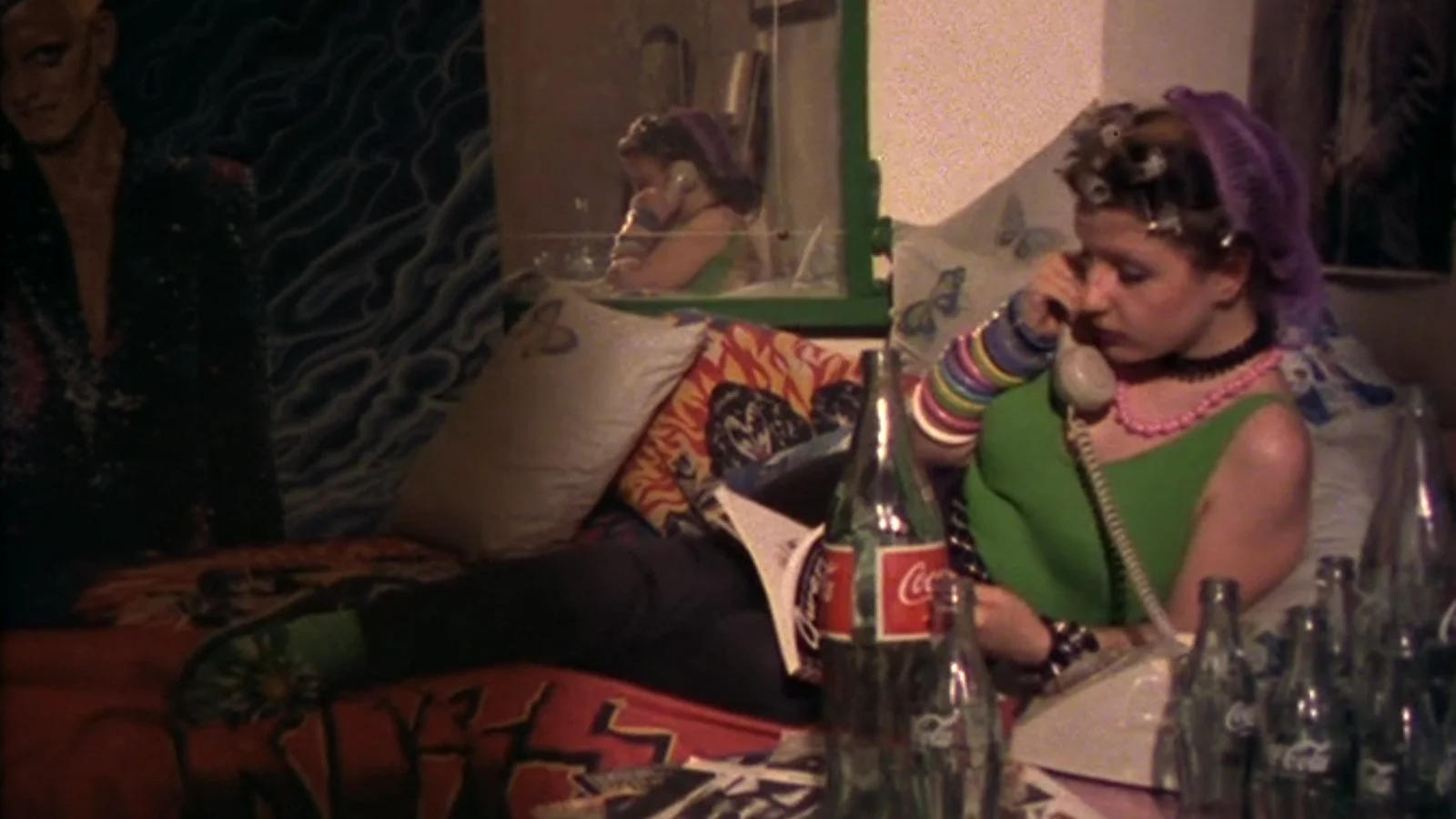Reel Pride: Pepi, Luci, Bom (1980)
After the death of Spanish dictator Francisco Franco in 1975, Spain underwent a period of adjustment now called the Spanish Transition. The country began to experience economic growth and developed a different cultural identity. Within this time period, Madrid itself experienced a change. Starting in early 1980, Madrid gave birth to La Movida Madrilena (The Madrid Movement), a period of artistic and sexual liberation. The movement led to a bursting of art from Madrid. Pedro Almodóvar became one of the leading voices in film during this movement. His debut feature film Pepi, Luci, Bom (also called Pepi, Luci, Bom y otras chicas del montón or Pepi, Luci, Bom and Other Average Girls) became the signature film for this time. It’s a messy, formally inconsistent, and transgressive film but it captures a certain energetic spirit. The film has since become a queer cult classic in Spanish cinema.
Pepi (Carmen Maura) is a free-spirited woman in Madrid who one day gets a visit from a cop (Felix Rotaeta) about the marijuana she grows on her window sill. In exchange for his silence, Pepi offers to have anal sex with him, but he notices that the plants are fake, and he rapes her. She’s mostly peeved that she cannot sell her virginity like she planned. Pepi attempts revenge by getting her lesbian musician friend Bom (Spanish singer Alaska) to beat him up with her cohorts. By mistake however they beat up the cop’s innocent twin brother Juan. To further get back at the cop, Pepi befriends the cop’s masochist wife Luci (Eva Siva). Luci leaves the cop to enter into a dom/sub relationship with Bom.
Pepi, Luci, Bom is a bad movie on an objective level. Its plotting is clumsy, some scenes are mere sketches that don’t cohere together, and the acting and filmmaking are amateurish. This is to be expected because not only is this Almodóvar’s first movie but he shot it with no money and could only shoot when he raised enough money. The film had to be completed over a number of years. Even by his next film Labyrinth of Passion in 1982, Almodóvar would tell a more cohesive narrative while keeping a loose vibe. Pepi, Luci, Bom is almost charming in a slipshod kind of way. It’s most successful at capturing this unique period of time, where drugs and sex flowed freely and young people could live with abandon. The costumes and hairstyling are radical, loud, and flashy with personalities to match.
Almodóvar began his career as a provocateur, who pushed boundaries of decency and propriety. One could pick apart this movie (and his other 1980s films) and unpack how problematic they are. And that would be a valuable exercise in how mores have changed over the last 40 years. Many of his movies, Pepi, Luci, Bom especially, are satirical and satirizing that very reaction to this movie. Much like John Waters, Paul Morrissey, Russ Meyer, and Ken Russell, he wants to shock his audience and catch them off-guard. Pepi, Luci, Bom presents a world free of oppression and repression, where anything goes and life is vibrant.
The film has two famous (infamous?) scenes. The first is when Luci meets Bom while giving Pepi a knitting lesson. Luci says she has to pee and Pepi suggests she pee on Luci because Luci is feeling hot. Bom does it, and so begins their passionate, sadomasochistic affair. The film is challenging the viewer’s with distasteful, absurd, or outrageous scenes, questioning what the audience can handle. Pepi, Luci, Bom has a sequence called “General Erections,” in which the host (played by the director himself) and Pepi measure all the mens’ penises to determine who has the biggest equipment. The winner can do whatever he wants with whomever he wants—no exceptions. This is another silly and farcical moment that highlights the frivolous and carnal independence of these Madrid youth. It’s quite a funny scene, and it’s the most emblematic of just how fun this movement must have been.
Beyond the central lesbian romance, the film does offer queer-friendly themes, especially a rebuke of the patriarchy and heteronormativity. The cop mercilessly beats and ridicules Luci, and she has eroticized his cruelty and goes back to him. Pepi and Bom are disgusted by her decision, and clearly the film is more interested in Pepi and Bom finding their futures in a city that is welcoming to them. The last scene, with Pepi and Bom chatting and strengthening their friendship, features Madrid at sunset, and it’s such a perfect snapshot of hope and giddy potential. Even though Pepi, Luci, Bom doesn’t have much of the elegance and sophistication than later Almodóvar movies would have, when he achieves a perfect moment like that, the film soars.













